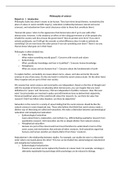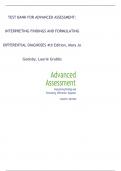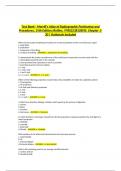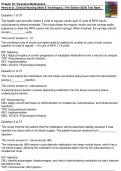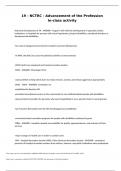Summary
Samenvatting Routledge Contemporary Introductions to Philosophy- Philosophy of Social Science, ISBN: 9781032075860 Philosophy of science (S_CSPP)
- Course
- Institution
- Book
This is a complete summary for the course Philosophy of Social Science. It includes the mandatory chapters from Risjford, the mandatory articles, and lecture notes.
[Show more]
